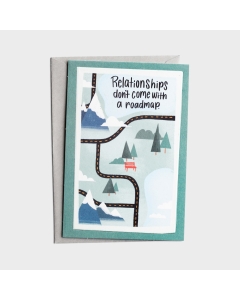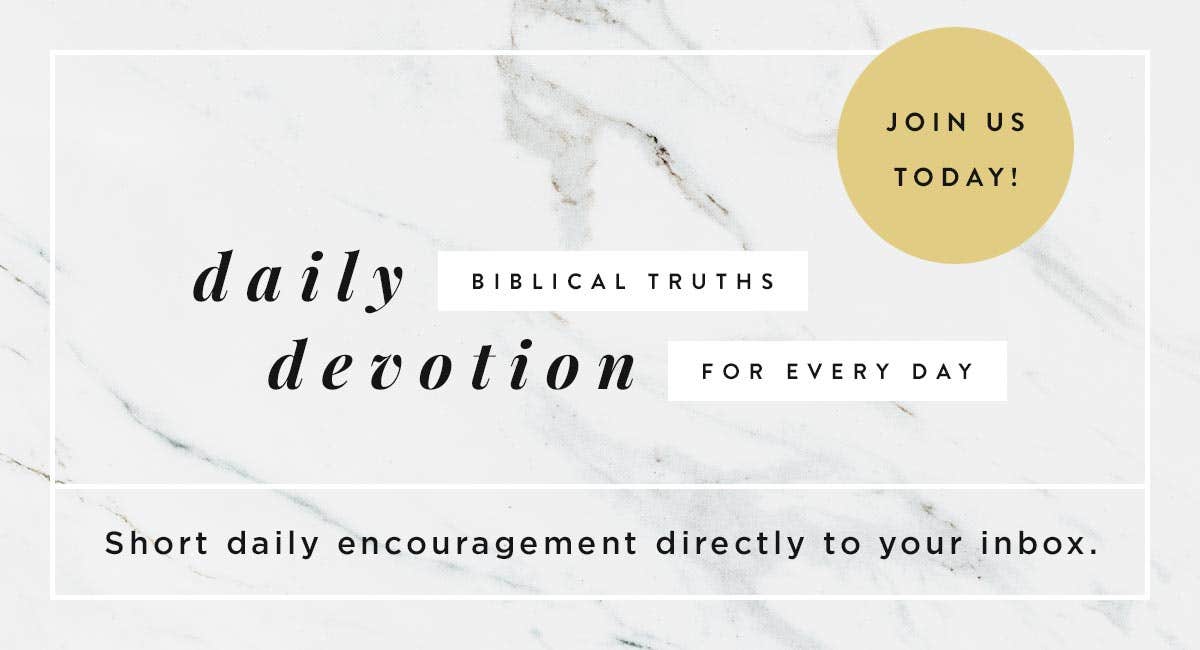Reconciliation: God’s Heart for Relationships

A few years ago I took out a pen and some paper and began to write a letter. I wrote to a friend of mine who had been very close to me for several years until recently. I couldn't pinpoint one big disagreement or one big event that had broken our relationship. It was like a lot of little things just became too much.
I wrote about memories and misunderstandings. I wrote about good intentions and hurt feelings. I wrote out everything I'd been thinking and feeling, and what things looked like from my point of view.
I mailed the letter feeling a little nervous, but also lighter knowing that however it would be received, at least the unspoken words had finally been said. At least I had reached out for healing.
God's heart for relationships is intriguing to me. I tend to think He is mostly concerned with everyone's relationship with Him and salvation, which He is, but He's also very interested in our relationships with each other. Matthew 5:23-24 NIVsays, “Therefore, if you are offering your gift at the altar and there remember that your brother or sister has something against you, leave your gift there in front of the altar. First, go and be reconciled to them; then come and offer your gift."
Of course, we need Him. Of course, our relationship with God is important to Him, but we need each other too. He knows how easy it is for damaged relationships to stay broken, and He asks us to mend them instead.
I'm not the master of reconciliation. I often feel like a kindergartner, dragging my feet to apologize to an unmannerly classmate at the teacher's request when God starts to nudge my heart to reconcile with a friend. But then I still feel the nudging, tender and sweet, reminding me of how many times He's showed me kindness, forgiveness, and unmerited grace, and how much it has changed me. Withholding love doesn't change people; giving it unconditionally does.
So how do we pursue reconciliation? Here are a few things that have helped me:
1. Acknowledge your feelings. If you feel hurt or disrespected, it's okay to acknowledge that. Those are your true feelings. I used to think God wanted me to shove those down in order forgive, but I realized that He is okay with me calling things as I see them. If you don't get down to the root of everything you're feeling, you won't be able to fully heal and let things go.
2. Seek understanding. Ask God to help you understand the other person's point of view. God has a great perspective because He loves and knows all of us. It's a good idea to ask the person as well. Listen to their point of view, setting aside your own for a moment. Being able to empathize with others and see things from another's perspective is key for healthy relationships. After you've listened and understood them a little better, it's okay to tell them how things felt on your end as well. You might not necessarily reach a point where you both agree, but you can reach a point where you connect again.
3. Forgive. Ephesians 4:32 NIV says, "Be kind and compassionate to one another, forgiving each other, just as in Christ God forgave you." We can't really get around this one. God calls us to forgive. We can find comfort in the fact that He's not asking us to do anything He hasn't already done. He forgives the sins of all who ask; we can forgive the people around us.
4. Give them a chance. If someone has hurt you or broken trust, you don't have to let them into the place they were before. They don't have to be close to you again right away but give them a chance to start to rebuild trust. Let them be around you a little bit, and if they are trustworthy, they can get a little closer.
5. In time, let things go. I am good at holding grudges because I have a great memory when it comes to people. It's easy for me to keep a tally of infractions, sometimes without even realizing it. The bitterness we hold on to can eat us up inside. It's better to give it to the One who redeems all things.
A couple of weeks after I sent my letter, I received one in return. My friend had responded with her point of view, her feelings, and her desire for things to be better as well.
My heart settled into peace as I read through her words. I wish I could say things were the same as before after that point, but sometimes brokenness takes time to heal, and that's okay. Small steps still count as movement, and people are worth it. They're worth investing in and forgiving.
Reconciliation takes courage, but we have a God who puts no limit on how much He forgives, and He is behind us cheering us on.
Who comes to mind when you think about reconciliation? Consider taking the first step toward repairing the relationship by sending a free, shareable “I’m Sorry” Ecard today or simply share this article with them by clicking on the icons to your left. And, feel free to check out our friendship cards and gifts to find just the right sentiment to move your relationship in the right direction.
Check out these related articles:
When it’s hard to say (or hear) “Praying for You”
Why Are We Called to Encourage?
Looking for more inspiration? Browse our entire Devotional Library and sign up for our e-newsletter to receive free articles, updates from our Ecard Studio as well as exclusive deals.






Leave a Comment